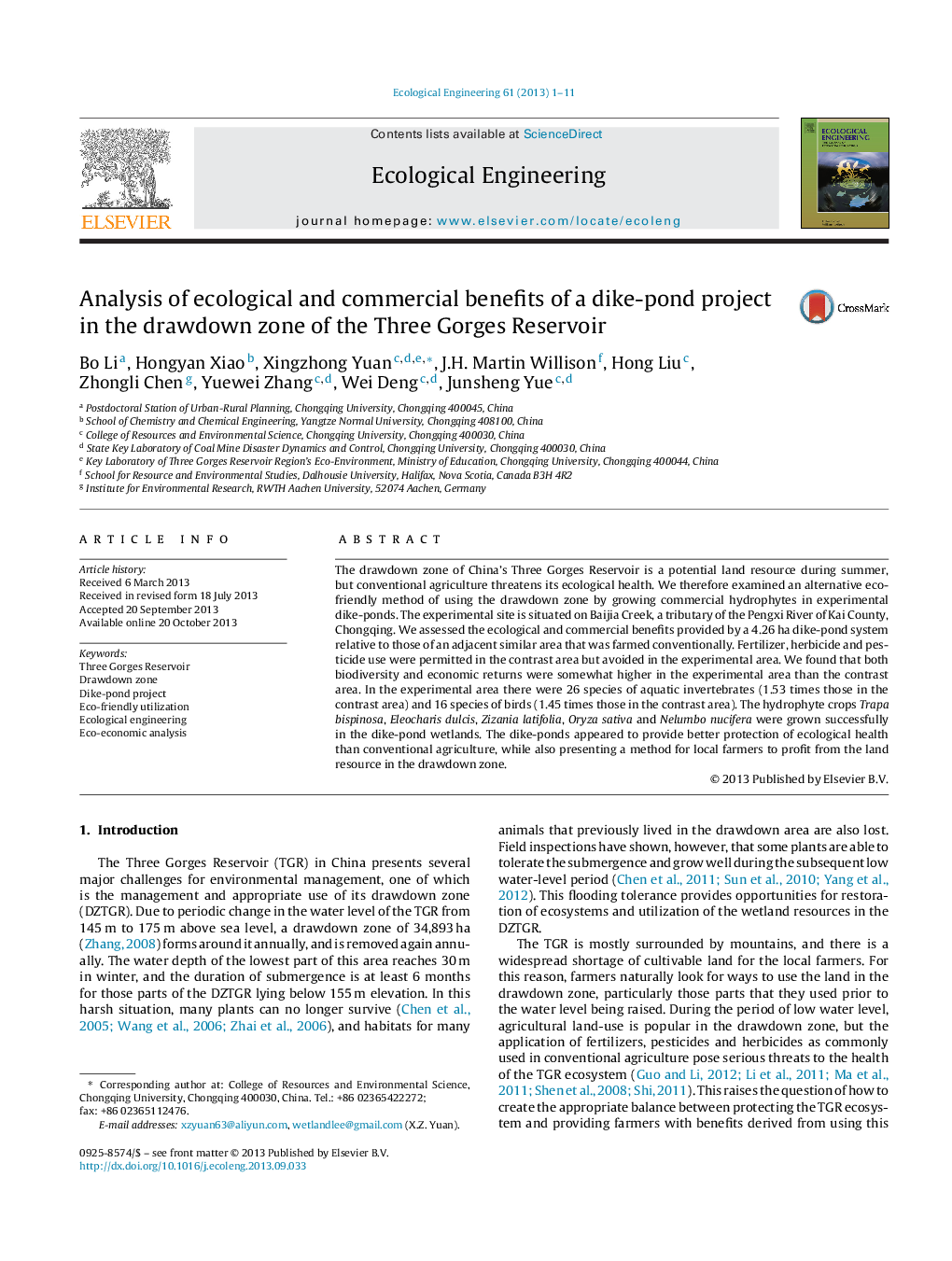| Article ID | Journal | Published Year | Pages | File Type |
|---|---|---|---|---|
| 4389456 | Ecological Engineering | 2013 | 11 Pages |
The drawdown zone of China's Three Gorges Reservoir is a potential land resource during summer, but conventional agriculture threatens its ecological health. We therefore examined an alternative eco-friendly method of using the drawdown zone by growing commercial hydrophytes in experimental dike-ponds. The experimental site is situated on Baijia Creek, a tributary of the Pengxi River of Kai County, Chongqing. We assessed the ecological and commercial benefits provided by a 4.26 ha dike-pond system relative to those of an adjacent similar area that was farmed conventionally. Fertilizer, herbicide and pesticide use were permitted in the contrast area but avoided in the experimental area. We found that both biodiversity and economic returns were somewhat higher in the experimental area than the contrast area. In the experimental area there were 26 species of aquatic invertebrates (1.53 times those in the contrast area) and 16 species of birds (1.45 times those in the contrast area). The hydrophyte crops Trapa bispinosa, Eleocharis dulcis, Zizania latifolia, Oryza sativa and Nelumbo nucifera were grown successfully in the dike-pond wetlands. The dike-ponds appeared to provide better protection of ecological health than conventional agriculture, while also presenting a method for local farmers to profit from the land resource in the drawdown zone.
